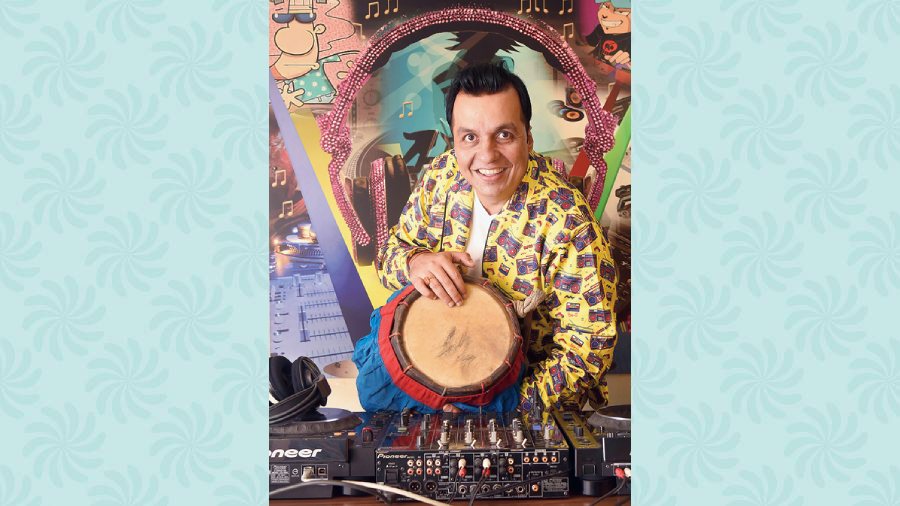Junior artistes learn from him, senior artistes respect him and haters want to be him! DJ Akash Rohira has completed 24 years as a DJ, and stepped into his 25th year in the industry, setting a personal milestone. From playing in clubs in Kolkata to rocking shows internationally, Akash has always curated sets that everybody enjoys. Without limiting himself to a genre, the DJ mixes Bollywood with house and commercial numbers.
Akash sat down for an in-depth chat with The Telegraph.
When was the first time you put your hands on a console?
That started on a fun note. My friends and I were planning a New Year party, so I said: “Music kaun bajayega?” So they said if they don’t find a DJ then I’ll play. I was always fond of cassettes; I still have them. It started on New Year’s Eve and it wasn’t a professional gig or anything; just friends. Post that came a friend’s wedding and he asked if I would play. That’s how it started... slowly.
Where was your first professional gig?
That was at Punjab Club. The committee got to know I am a performer, so they wanted to keep a DJ night called ‘DJ Akash Night’. For the first time such an event happened and surprisingly we had 300-plus people that night. My hands were trembling, they still tremble because it’s not easy.
Even on your biggest night?
If you ask me about my biggest night it has to be the one at Swabhumi. One of the organisers had a full concert with DJ Akash. That was my first concert where they had 10 billboards and that was the first time a DJ was performing at Swabhumi. This was around 2004. The concert was attended by more than 500 people; that was the first time I got the feeling of being an artiste. People are waiting for you, there is security, interviews are being done....
You were first into tribal house and then moved into Bollywood, right?
I have always been a tribal house person, I am more of a retro music lover like the Bee Gees, ABBA, Bruce Springsteen... because those will never fade out and the ’70s-’80s were the eras. But then I got into tribal, which was my personal favourite and Bollywood has always been the choice of the crowd. I call myself a DJ by the crowd and for the crowd. I made it my forte. When I started, Bollywood was not much in. This is 2003-05... there was Bollywood but there was no hardcore Bollywood DJ. Selected tracks were there, like Chura liya, one or two Punjabi tracks but then slowly that era came of Govinda, which turned the whole scene around. From there it turned into the eras of Koi kahe, It’s the time to disco... so disco entered the club scene. Those kind of tracks were always in and then commercial tracks became a hit. Like Enrique (Iglesias), Backstreet Boys. In one night you could play an Enrique album back-to-back and people would groove. After this, Bollywood pop became a thing. For example KK, Alisha Chinai, Lucky Ali, Shaan.... This was the era of Bollywood pop and every artiste was doing it and from there came Punjabi. Punjabi was always there and today it is everywhere.
Being a part of so many eras must mean a lot to you.
I am blessed to be here. As an artiste I am blessed to have seen the changes happening. I have seen so many changes happening, from Euro to trance to psy to tech to Afro, right from Bollywood movies to pop and albums, Punjabi pop which is in now. Music has evolved and I am proud to say that I have seen that evolution.
Other than the style of music what are some big changes you have seen in the industry?
There are always pros and cons to everything. The scenario has changed, some are for the better and the changes that upset me are my observation. There was a time we would be called the “bandwalas”; people did not know what a DJ was. Someone once complimented me by saying I sing very well. Imagine, if I actually sang?! When I started coaching, I remember parents would say: “I hope my son won’t take the wrong path.” The evolution has taught people what a DJ means. Actors, models, industrialists too are into DJing now. But it’s more of a passion than a money-making thing now.
Is it easier or tougher to be a DJ now?
Back then, you could have become a DJ but perhaps you did not know how. Equipment was not easily available; I started with two Sony CD players and a basic mixer... it wasn’t even a DJ mixer. So two CD players on two sides and sometime a cassette player. That is how I started and it took me four years to buy my first equipment. It used to only come from Singapore and owning equipment at that time meant you had to be somebody. Not only in way of money but also connections. My first set cost me Rs 80,000... back then. And I collected my money with these small shows; I would rent my CD players, my dad offered money but I did not want it. I used to get pocket money of Rs 250 to work in my shop because my dad wanted me to understand the value of money. Back then no one was there to teach what BPM matching is; now that has become easy with the upgraded models and players... sync button! Back then it was only play button, pause button and a pitch button.
How would we identify BPMs back then? We would look at a clock and count the number of beats in a minute and then note it down. This is how we understood the speed of songs.
The difficulty of becoming a DJ now is you don’t know where the journey will take you because there are too many DJs. Now you have to work hard to be recognised and be different and that’s where it is difficult.
Akash’s memorable shows
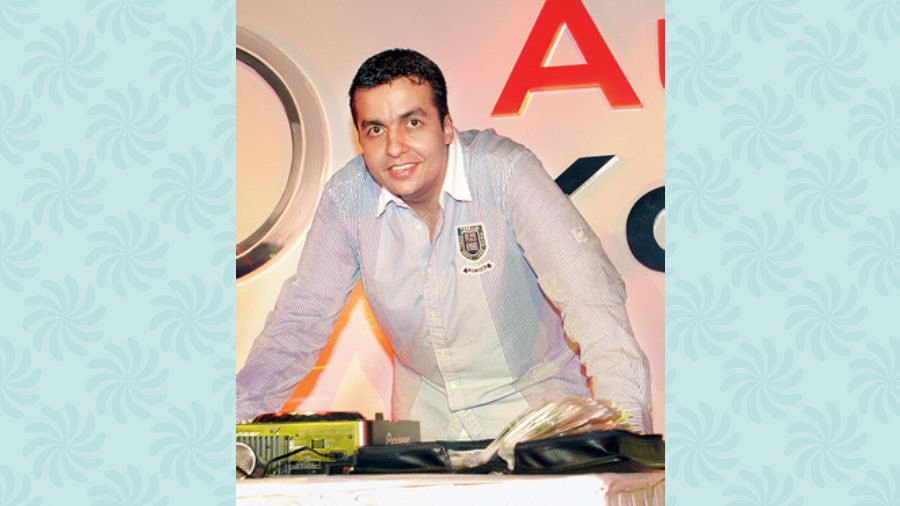
DJ Akash live at Audi Fashion Night
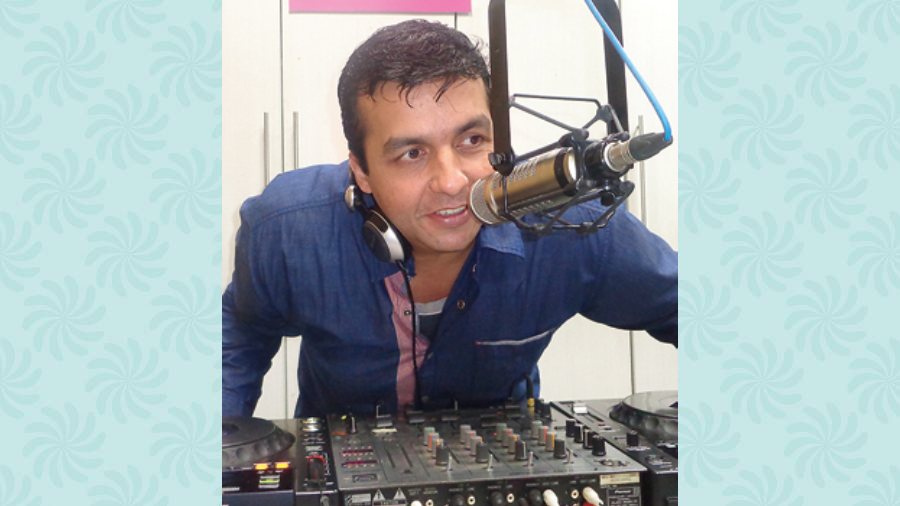
91.9 Friends FM anniversary
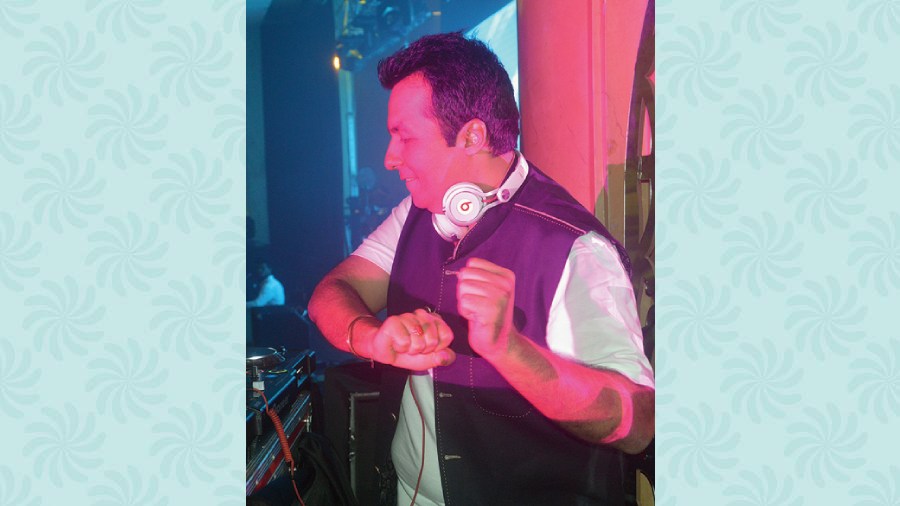
Gig in Malaysia for the country’s king and queen
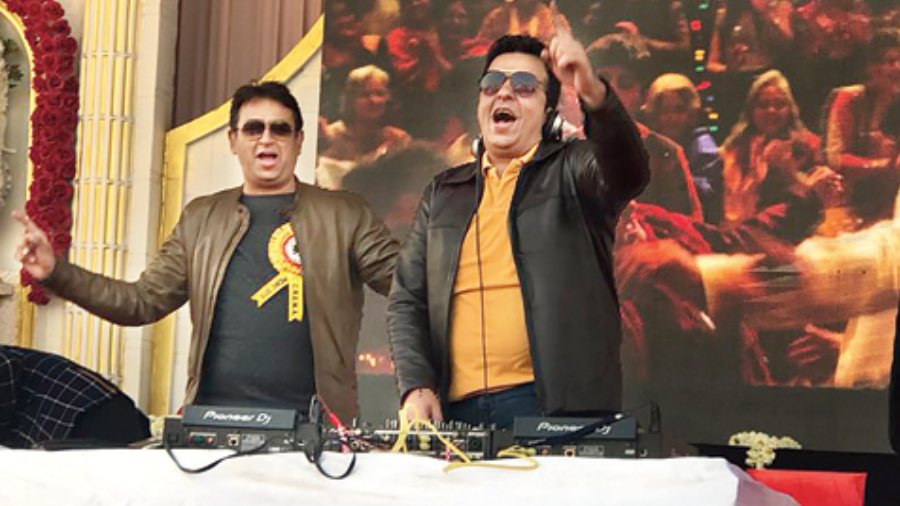
Delhi Carnival for 15,000 people
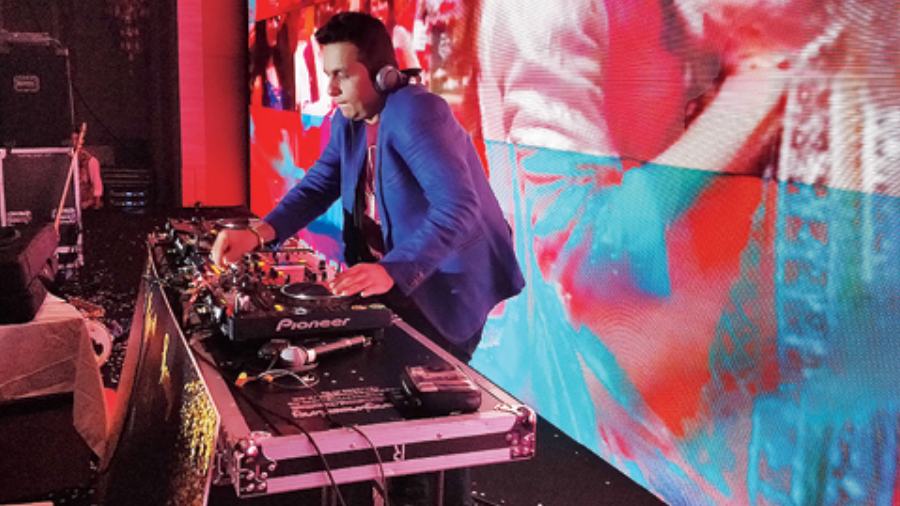
DJ Akash live in Hong Kong
